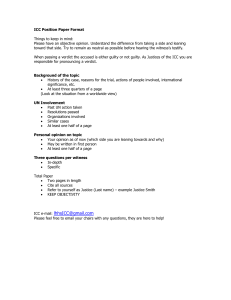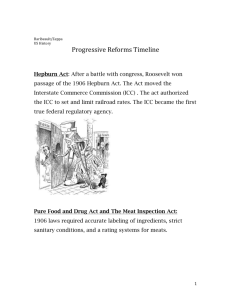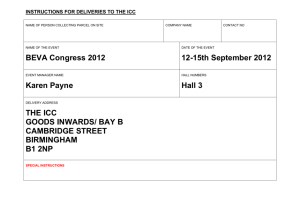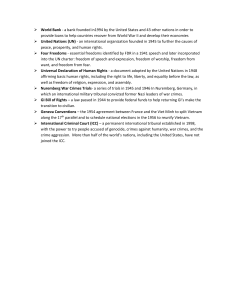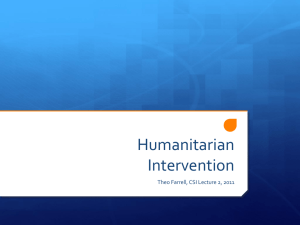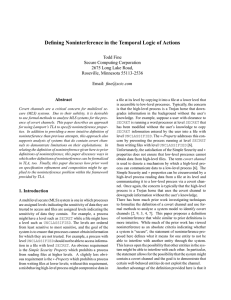Human Rights - University of Maine System
advertisement
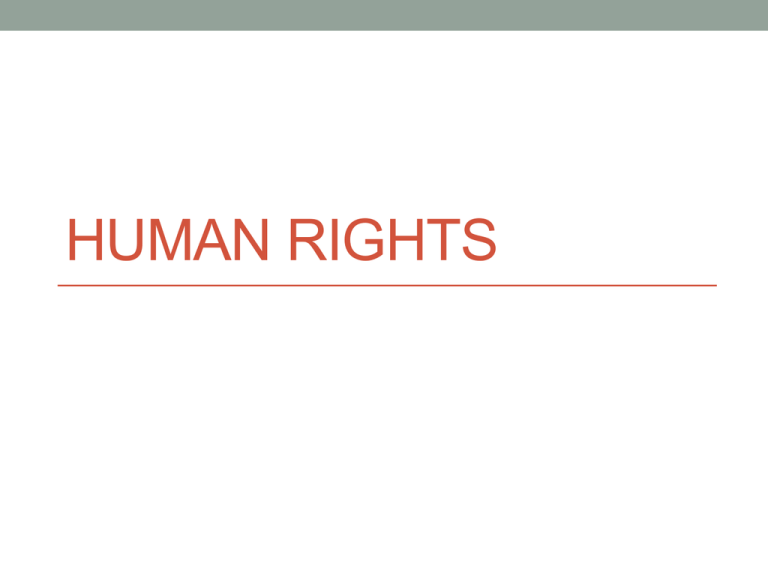
HUMAN RIGHTS A Human Rights Revolution? • Post WWII the international community sought a definition of universal human rights and a re-definition of the international community’s role in protecting human rights. • The resulting declarations, resolutions, and treaties on human rights that have emerged since WWII, challenge traditional conceptions of sovereignty. • Some consider the international community’s new willingness to intervene on behalf of universally recognized human rights norms a revolution –as the new human rights norms overthrow traditional conceptions of state sovereignty and non-intervention. Human Rights Declarations and Treaties • Universal Declaration on Human Rights (1948) • International Covenant of Civil and Political Rights (ICCPR)—went into force in 1976 • Covenant on Economic and Social Rights (CESR)- went into force in 1976 (U.S. has not ratified the CESR) How is Human Rights Law Enforced? • UN Peacekeeping Troops • Economic Sanctions • International Criminal Court • Humanitarian Intervention International Criminal Court • Following the UN tribunals on Yugoslavia and Rwanda • • • • • most of the world’s countries signed a treaty to create a permanent International Criminal Court. ICC opened in 2003 in The Hague The ICC hears cases of genocide, war crimes, and crimes against humanity In 2009 the ICC indicted sitting Sudanese president for crimes against humanity. 2011 the ICC indicted Libyan dictator, but he was killed before facing prosecution Note: The United States is not a signatory to the ICC Humanitarian Intervention • Use of military measures by the international community to end human rights abuses in an otherwise sovereign state. • Based on the principle R2P Global norm, recently endorsed by the UN, that states have the responsibility to protect their citizens from human rights abuses and that, when states fail to do so, the international community has both a right and a responsibility to intervene. A Role for NGOs • International NGOs such as Amnesty International and Human Rights Watch can use pressure and publicity to get states to follow human rights laws • Norm entrepreneurs functions of NGOs • Advocacy—promote international norms • Spot light abuses and disseminate information—monitoring/watch dog function • Shame countries into compliance with international norms (“Naming and Shaming”) • “Twenty years ago we would not have been fighting in Kosovo. We would have turned our back on it….Noninterference has long been considered an important principle of international order…..But the principle of noninterference must be qualified in important respects. Acts of genocide can never be a purely internal matter.” • Tony Blair, speaking on the humanitarian intervention in Kosovo • The right of states to intervene to stop genocide and human rights abuses is widely accepted. The bigger challenge has been to get states see it as a responsibility. And an even bigger challenge has been to get states to respond effectively to genocides and human rights crises. Frontline Film: Ghosts of Rwanda • https://www.youtube.com/watch?v=u3DrvrrSgHI&list=PLX _fe91XoKLmF8ibmaO1yrvHG_xCX9imQ • This is not a required film. HOWEVER, if you are interested in gaining a better understanding international human rights issues and how the international community might improve its response to humanitarian crises, I highly recommend this film. Please be advised it contains graphic images of the Rwandan genocide.
